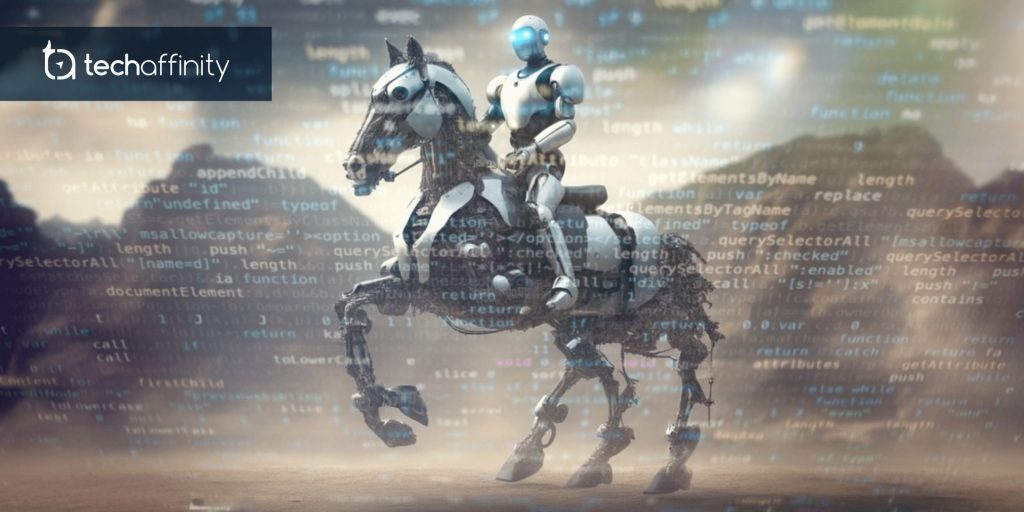Role of AI in Cybersecurity: A Comprehensive Overview

Author : Arul Selvan 1st Aug 2023

In the face of increasingly prevalent and complex cyberattacks, the imperative for innovative security defenses is skyrocketing. A standout candidate among technologies revolutionizing the cybersecurity landscape is Artificial Intelligence (AI), renowned for its threat-detection abilities and real-time automated responses. This blog explores AI’s impact on cybersecurity, its applications, strengths, drawbacks, and its promising outlook.
Implementing AI and Machine Learning in Cybersecurity
The deployment of AI and machine learning has become pivotal in bolstering the effectiveness of Security Orchestration, Automation, and Response (SOAR) systems. Such technologies allow for discerning data patterns and trends, curtailing incident response times, and adhering to security best practices. AI-powered systems can efficiently analyze massive volumes of risk data, outperforming human capabilities, and refine their rules and configurations to limit both false positives and negatives.
Real-world Applications of AI in Cybersecurity
AI plays a key role in a range of cybersecurity applications:
1. Threat detection and prevention: AI vigilantly monitors networks and devices, picking up anomalies and behavioral patterns that signify potential breaches.
2. Anomaly detection: It accurately identifies and prioritizes risks, swiftly detecting network malware, and directing incident response.
3. Network security: AI scrutinizes incoming and outgoing network traffic, identifying suspicious activities and classifying potential threats.
4. Malware identification and protection: AI promptly detects and impedes the propagation of malicious software.
5. AI-driven threat intelligence: By consolidating intelligence from countless research papers, blogs, and news stories, AI delivers quick insights to clear the clutter of daily alerts and dramatically reduce response times.
The Benefits of AI in Cybersecurity
AI brings to the table several remarkable advantages in cybersecurity:
- Swift and precise threat detection: AI’s capacity to rapidly process large volumes of data enables it to pinpoint threats much faster than humanly possible.
- Strengthened network defense: AI can enhance an organization’s security strategy by increasing their cybersecurity response’s speed and accuracy.
- Automation of routine tasks: AI takes over mundane tasks like patch management, enabling cybersecurity professionals to tackle more complex issues.
- Augmented decision-making abilities for security professionals: AI provides crucial insights to support cybersecurity decisions.
Challenges and Drawbacks
However, AI also presents hurdles and limitations in cybersecurity:
AI in the hands of cybercriminals: AI could be exploited by cybercriminals to spot vulnerabilities and carry out advanced attacks.
Heightened arms race between cybersecurity professionals and cybercriminals: As both sides use AI, the conflict escalates.
Maintaining ethical use of AI in cybersecurity: There are inherent risks in using AI for cybersecurity that require responsible management and control.
Emerging Trends of AI in Cybersecurity
AI in cybersecurity is going to go through continuous evolution, incorporating other advanced technologies such as the Internet of Things (IoT) and blockchain. Anticipated trends include:
1. AI-driven threat intelligence: AI will broaden its understanding of cybersecurity threats and cyber risk through the analysis of extensive data.
2. Integration with other advanced technologies: AI will increasingly blend with IoT, blockchain, and other technologies to bolster cybersecurity measures.
3. Ongoing evolution to counter new threats: AI will constantly adapt to fresh threats, maintaining effective, up-to-date cybersecurity measures.
The pivotal role of AI in cybersecurity is indisputable. By augmenting human expertise and decision-making, AI enables organizations to stay a step ahead of cyber threats. However, it’s vital to acknowledge the challenges and limitations tied to AI in cybersecurity, and the importance of continued investment in research and development to ensure AI remains a potent weapon against cybercrime.
